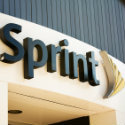
Sprint said its initial 5G launch will happen "in the coming weeks," but that's not stopping tens of thousands of customers from leaving the operator.
Sprint lost 189,000 phone customers during the first three months of this year, which the Wall Street Journal noted is the operator's biggest such drop since 2015.
And, as Recon Analytics analyst Roger Entner pointed out, Sprint lost far more customers in the period than any of its rivals. AT&T lost 55,000 phone customers during the first quarter, while Verizon lost 44,000 phone customers during the period. Comcast, Charter Communications and T-Mobile all recorded gains in phone customers in Q1, with T-Mobile leading the pack with 656,000 phone customer additions.
Nonetheless, Sprint said it remains on track to turn on mobile 5G in Chicago, Atlanta, Dallas and Kansas City in the next few weeks, although the operator did not provide any more specificity in terms of timing. The operator said it will launch the remainder of its initial 5G markets -- Houston, Los Angeles, New York City, Phoenix and Washington, D.C. -- by the end of June. Importantly, Sprint said it expects its initial 5G coverage footprint across all nine cities to be more than 1,000 square miles.
Sprint's initial 5G coverage area will likely dwarf the mobile 5G coverage areas currently offered by AT&T and Verizon. Although neither of those providers have provided details on their respective 5G coverage areas, both operators are using millimeter-wave spectrum for their initial launches, and as a result signals from cell towers only travel a few hundred feet. Sprint, meantime, is using its 2.5GHz spectrum for its 5G launch; transmissions in that spectrum can travel several miles due to the propagation characteristics of signals in that band.
But there are also some unknowns about Sprint's 5G plans, including how much it might charge for the service and what kinds of speeds customers might receive.
Sprint also offered a handful of related updates on its network-upgrade efforts:
It has deployed 2.5GHz across 80% of its macro sites, up from 60% a year ago.
It now counts 30,000 outdoor small cells, partly thanks to its small cell deal with cable company Altice USA, up from just 5,000 a year ago.
And it now counts 1,500 Massive MIMO radios deployed in a number of different cities.
Proposed T-Mobile merger remains an overhang
A huge cloud is hanging over Sprint, of course, is the proposed merger with T-Mobile. Sprint officials on the operator's earnings conference call with investors continued to offer an upbeat outlook on whether regulators at the FCC and the Department of Justice would approve the merger. However, analysts are generally souring on the deal's chances, and reports have indicated antitrust officials at the DoJ aren't keen on the current structure of the transaction.
If Sprint is ultimately unable to consummate its proposed merger with T-Mobile, the question then becomes: "What's the back-up plan?" That's exactly the question that the analysts at Wall Street research firm MoffettNathanson asked in a research note to investors. The firm wrote that there's little chance that Sprint will merge with Dish Network or a cable company, and that SoftBank likely won't dig up the billions of dollars in investment necessary to create parity between Sprint's wireless network and the wireless networks from the likes of AT&T and Verizon.
And that might put bankruptcy in Sprint's future if its merger with T-Mobile falls apart.
"If Sprint is left on their own, they can sell spectrum. But that would be tantamount to burning the furniture to keep the house warm. Absent a credible path for sustainable positive FCF [free cash flow], selling spectrum would delay, but not prevent, a longer-term reckoning," the MoffettNathanson analysts wrote in a note to investors. "Of course, none of this is the DOJ's concern. Their job is to protect Sprint's customers, not Sprint's bondholders. With that in mind, the only question the DOJ need legally concern itself with is whether Sprint would be a viable competitor… AFTER a bankruptcy."
As for Sprint, the company's executives generally declined to answer questions during the company's earnings conference call about what the operator plans to do after its initial 5G launch, such as whether it would expand the service to additional markets. But Sprint CEO Michel Combes acknowledged that, if the operator is unable to merge with T-Mobile, Sprint will likely need to reposition, reduce its promotional activities and narrow its geographic focus.
— Mike Dano, Editorial Director, 5G & Mobile Strategies, Light Reading | @mikeddano
About the Author(s)
You May Also Like




.jpg?width=300&auto=webp&quality=80&disable=upscale)







